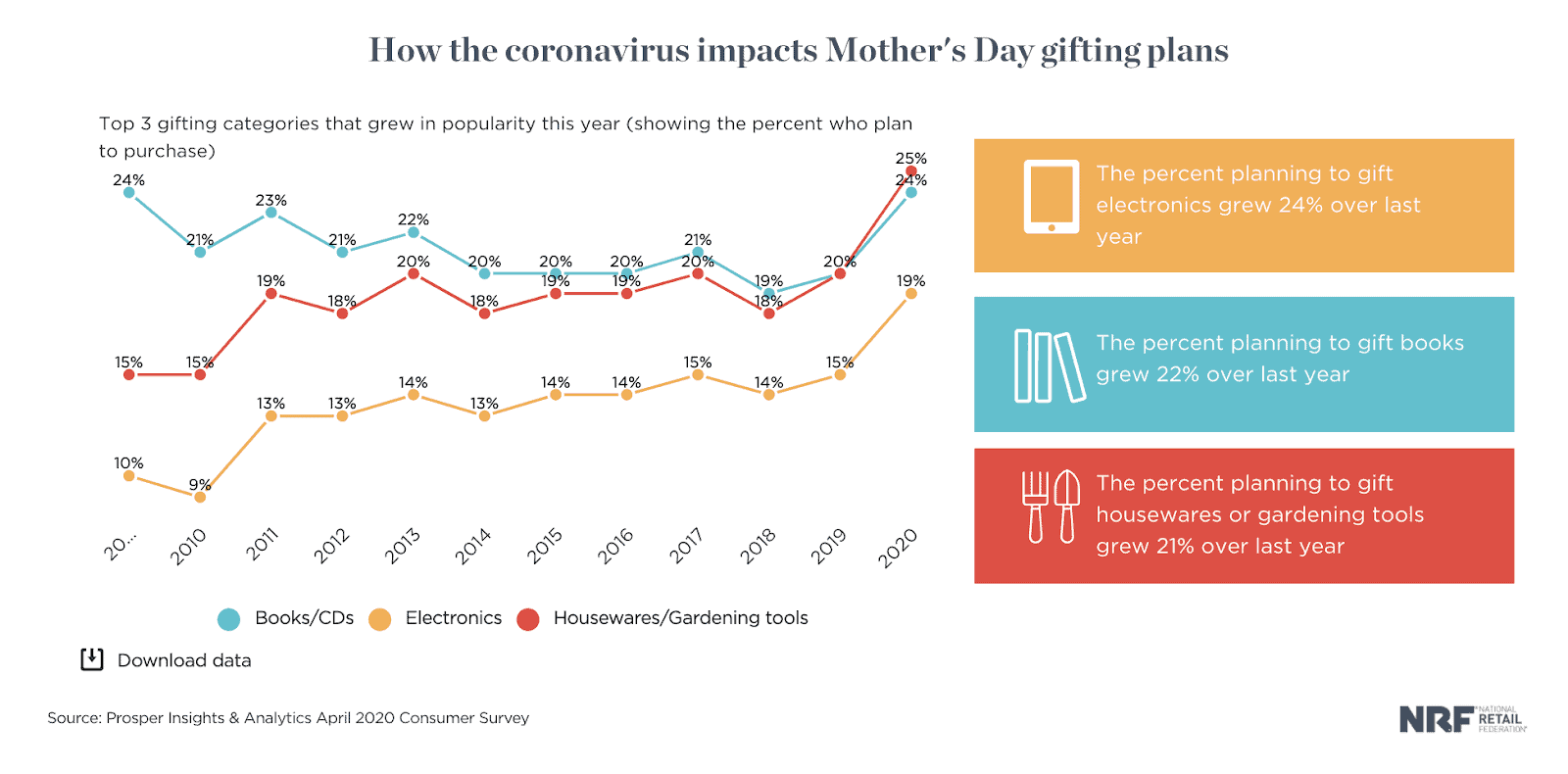The world has changed dramatically since the outbreak of Coronavirus (COVID-19). Travel restrictions, loss of employment, shelter-in-place guidance, and new work from home (WFH) conditions have influenced how, when, where, and why consumers shop, and how merchants conduct their business operations. These factors will certainly impact how consumers spend during upcoming holidays, including Mother’s Day and Father’s Day. The vast majority (77%) of consumers noted that they will be spending less on Mother’s Day this year due to the impact of COVID-19.
After celebrating Mother’s Day on Sunday, and with Father’s Day rapidly approaching, both holidays are typically marked by upticks in online gift purchases for Mom and Dad. This year will look a little different. Social distancing restrictions mean that there will likely be fewer traditional brunch outings or family gatherings, but 46% of consumers still want to celebrate mom or dad with a special meal, day out or other activity. In the UK, 83.9% of Brits believe Mother’s Day is “an important occasion,” but COVID-19 is likely to impact how and where these individuals shop for the holiday.
Getting Ready for Holidays Amid Coronavirus
Businesses should be getting themselves ready for modified consumer behaviors this Mother’s Day and Father’s Day season. Since brick and mortar options are likely to be limited in most regions, online shopping is likely to increase in some categories. Projected gifting plans highlight increases in Books / CDs, Electronics, and Housewares / Gardening Tools.
During recent weeks, restaurants that have been forced to shutter their doors amid Coronavirus health concerns have looked for patron support while maintaining social distance by opening their business for increased takeout orders and gift certificates options. The latter gives restaurants cash now for meals that will be consumed when the pandemic ends, and also doubles as excellent gifts for Mom and Dad.
Moving forward, businesses will need to be mindful of two things:
- Ensuring that their online channels are prepared for increased activities
- Fraudsters looking for weaknesses to exploit
Digital Transformation
Recent weeks have traced the need for businesses to ensure that they can support influxes and changes to how consumers interact with them online. While not offsetting the pains that many merchants are feeling in the physical world – with their brick and mortar operations being forced to shut down – influxes in online consumer buying patterns have underscored a need for merchants to digitally transform their business.
People – both those that have been habitual online shoppers, as well as those new to online shopping altogether – now have a sudden need to buy both essential and non-essential items from online merchants. From online clothing retailers to marketplaces, Mother’s Day and Father’s Day gift demands are likely to increase. An influx in demand will put strain on businesses’ operational capabilities, especially if they do not prepare beforehand.
Delays to fulfillment, especially when the holidays require delivery on specific days could mean diminished customer loyalty and could negatively impact brand reputation. Additionally, it is likely that businesses that are not amply prepared will see increased service chargebacks.
Preparing for Fraud and Avenues of Abuse
Online criminals are attuned to the fluctuations of the e-commerce ecosystem. They’re alive to the possibilities presented by alternative forms of payment, they test different verticals to identify weaknesses they can exploit, and they use holidays to mask their activities.
This means that accurate online fraud detection is especially important around holidays. Merchants need to be able to distinguish between fraudsters who are manipulating the trends of the time of year, the vulnerabilities of suddenly overburdened systems and customer support teams, and good customers making legitimate purchases. Of course, this means retailers have to be especially careful, since they’re up against criminals who already know the space. On the other hand, it means an online fraud prevention platform which excels at making connections between returning or repeating customers (even if they’re trying to hide) has an advantage, since it’s likely that a site is being attacked by fraudsters who’ve been there before.
Don’t Let COVID-19 Get You Down
Coronavirus has certainly dampened activities across the globe throughout the early months of 2020, but if merchants amply prepare they can ensure they are able to meet the challenges that lay ahead. Partnering with a fully integrated fraud prevention platform will allow businesses to proactively prepare for dynamic changes in consumer and fraudster behaviors, ensuring they make the most out of the upcoming holidays.





